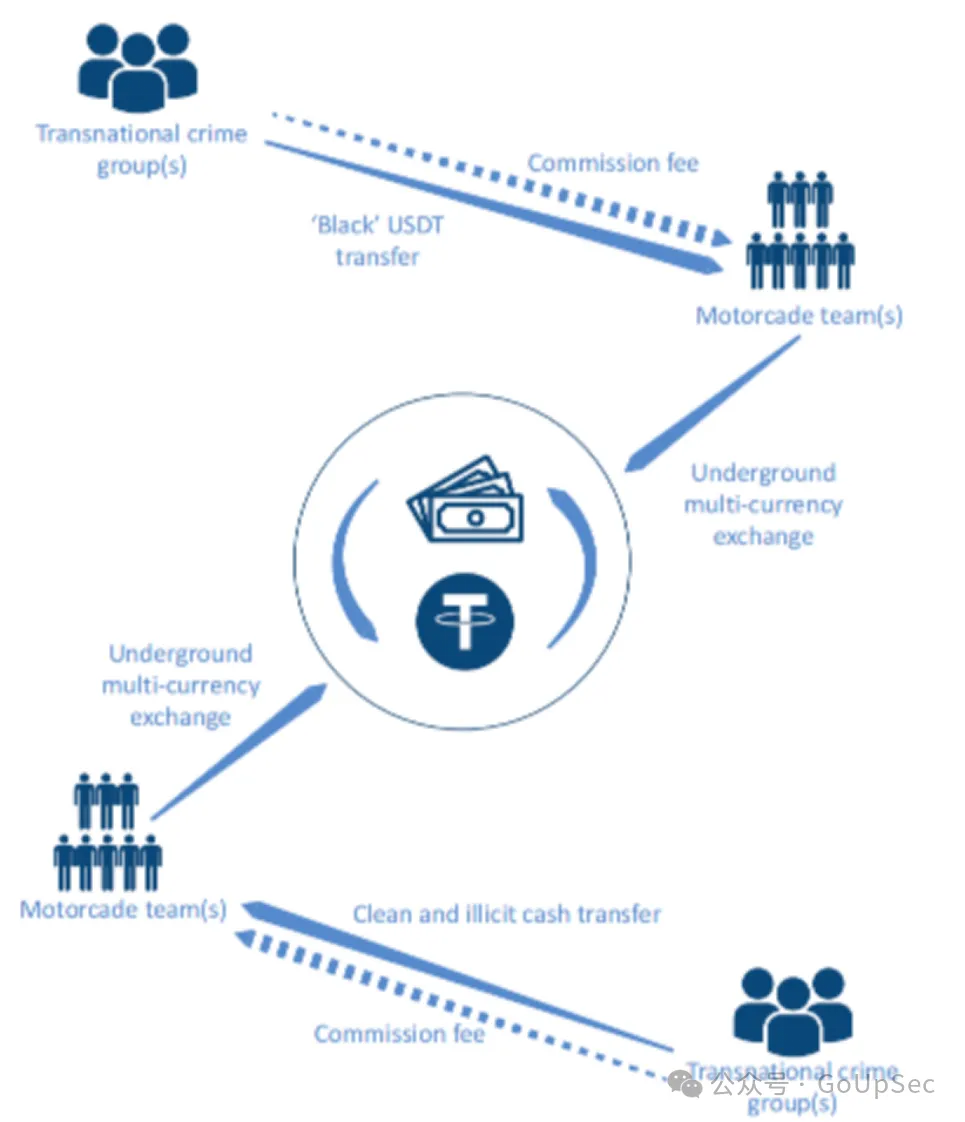The "Shadow Currency” of the Underground Economy: Tether

As the world's largest stablecoin, Tether (Tether, commonly known as Tether) is quietly reshaping the global political economy and cybercrime landscape. Its unregulated nature is undermining the United States' effectiveness in combating arms dealers, sanctions breakers, and cybercrime.
Payment scale comparable to Visa
The market size of Tether is close to that of traditional payment systems, with an average daily transaction volume of $190 billion in 2022, comparable to Visa cards. Unlike other cryptocurrencies, Tether is pegged to the U.S. dollar at a 1:1 value, so it is called a "stablecoin." However, this "digital dollar" controlled by a private company headquartered in the British Virgin Islands operates with almost no government supervision.
The boom in the cryptocurrency market in 2020-2021 has put Tether on the throne of mainstream stablecoins, with a market value soaring from $4 billion to nearly $80 billion, and assets as high as $120 billion, most of which are risk-free U.S. Treasury bonds, as well as Bitcoin and gold positions. Last year, Tether generated $6.2 billion in profits, $700 million more than the world's largest asset management company BlackRock, while the number of employees was only a fraction of the latter.
In May this year, Tether CEO Paolo Ardoino claimed that the number of Tether users has exceeded 300 million.
Invisible Dollar
Tether is unique in that it is not only used by cryptocurrency enthusiasts, but has also penetrated the global financial black market. In places where the United States restricts access to the U.S. dollar financial system, such as Iran, Venezuela, and Russia, Tether has become a "stealth dollar" to circumvent sanctions and transfer funds across borders.
Because it can bypass the strict supervision of the US dollar system, Tether is widely used in cybercrime and sanctions evasion. Venezuela's state-owned oil company, Russian oligarchs, arms dealers and even some terrorist organizations have used Tether to make payments to evade international sanctions. At the same time, Tether has also brought "stability" to some countries with imperfect financial systems, and even replaced legal tender in life.
For example, in Argentina and Turkey, Tether is seen as a safe haven from inflation and currency depreciation, and local people rely on it for daily payments and see it as a means of storing wealth. A peer-to-peer trading platform called El Dorado helps Venezuelans convert their daily income into Tether, with more than 150,000 users. In Iran, a cryptocurrency exchange called TetherLand allows Iranians to convert rials into Tether; in Venezuela, 30-year-old Caracas graduate Guillermo Goncalves runs a platform called El Dorado that provides peer-to-peer Tether transactions for Venezuelans; in Georgia, a popular immigration destination for Russia, CityPay.io, a major recipient of Tether financing, has launched a Tether payment system for thousands of Georgian businesses.
According to Wally Adeyemo, Deputy Secretary of the U.S. Treasury, the popularity of Tether is weakening the United States' financial sanctions. The United States is able to impose sanctions on unfriendly countries through the dollar-dominated global financial system, and the rise of Tether is challenging this power. "We need a regulatory framework that does not allow offshore dollar-backed stablecoin operators to enjoy a different set of rules," Adeyemo mentioned at a congressional hearing in April this year.
Cybercrime and regulatory challenges
Tether has not only attracted ordinary users and businesses, but has also become a favorite of cybercriminals. According to a United Nations report, Tether has become the "preferred" currency for money laundering and underground banking activities in Southeast Asia.

Cybercrime organizations are adept at using the “caravan model” of Tether to launder money (pictured above), which may also include fiat currency exchanges and other informal value transfer methods. For example, criminals often use online casinos to mix criminal proceeds with entertainment gambling funds.
Although Tether claims that it can track every transaction and freeze suspicious wallets, in reality, the action of freezing accounts is like playing whack-a-mole. From 2018 to June 2023, Tether has frozen a total of 2,713 wallets on its two major blockchains, which received a total of about $153 billion, but Tether, the company issuing Tether, has only frozen $1.4 billion of them, and a large amount of funds have been transferred out in advance.
Aldo Ino, CEO of the company that issues Tether, has said that the goal of Tether is to build a "more equitable, connected and accessible global financial system." However, critics believe that the rise of Tether is actually a threat to the norms and transparency of the global financial system.
In fact, Tether not only plays an important role in illegal transactions, but also becomes a financial relief in economically troubled countries. In Venezuela, the government uses Tether to circumvent US economic sanctions and even requires the state-owned oil company to settle in Tether (a move that has led to serious corruption).
There is no doubt that Tether is rapidly influencing the global financial landscape, and its unregulated nature has brought both opportunities and concerns to global regulators. In the future, whether this borderless, decentralized digital currency will completely change the global financial system remains to be seen.